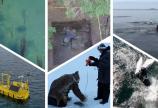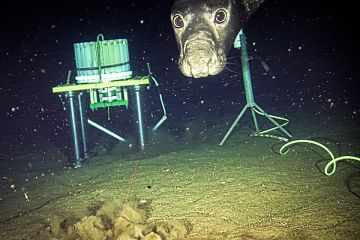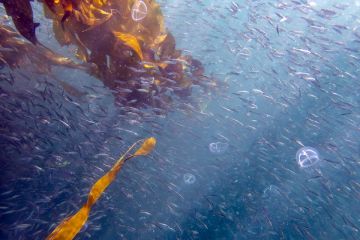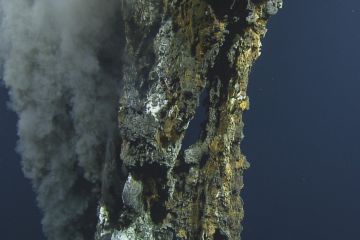UVic celebrates 2022 World Oceans Day
Humanities, Science, Social Sciences
- Leyland Bradley
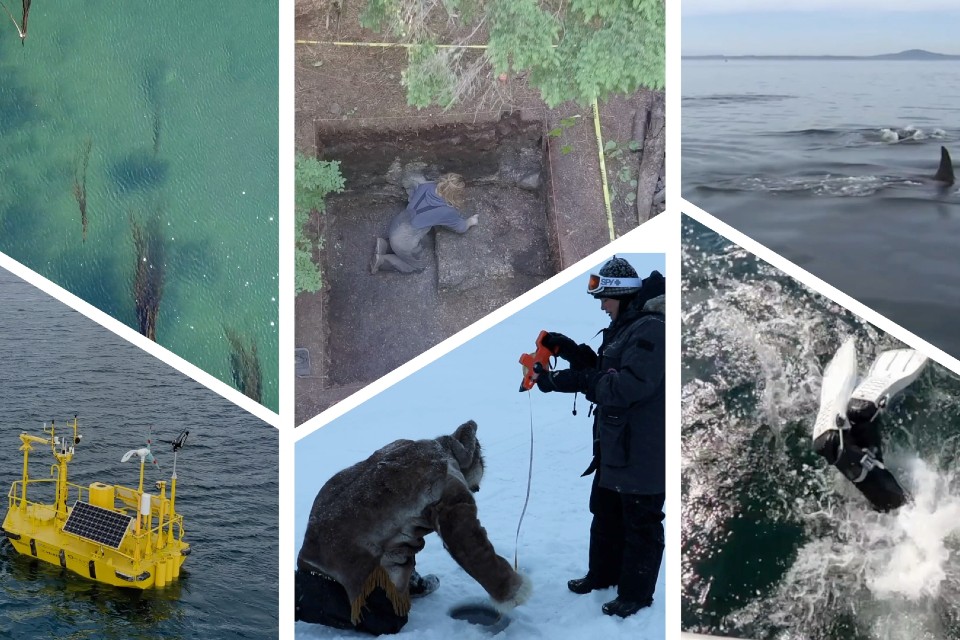
June 8 marks World Oceans Day—an opportunity to celebrate our world’s oceans as a precious resource that is vital to life.
Ocean staff and researchers are conducting work aimed at creating solutions that not only targets some of Canada’s current and future climate needs, but also provides real-world solutions that have the potential to change the world’s climate issues.
Renewable clean energy, orca pod analysis and ancient sustainability practices are only a few of the exciting projects that University of Victoria researchers are choosing to target.
Out to Sea
The research taking place out in the water is helping to answer some of our biggest challenges we face with climate change.
The question of “what to do with excess carbon dioxide in our air?” continues to be at the forefront of climate change mitigation. UVic’s Ocean Networks Canada’s Kate Moran explains that the Solid Carbon project takes this challenge head-on by taking direct air capture of C02 and injecting it into basalt rock in the ocean floor.
…it could be one of the biggest solutions for climate mitigation in the world"
–Kate Moran on the Solid Carbon Project
Chloe Immonen and Brad Buckham of Pacific Regional Institute for Marine Energy Discovery (PRIMED) are part of a team that has the potential to fundamentally change the way local BC communities rely on diesel.
Locally designed and manufactured, the Pacific PRIMED buoy is built for tracking wind speed and ocean waves, collecting data to help design a wind turbine that could impact how coastal BC communities can reduce their reliance on diesel.
At a national scale it’s clear that we’re in need of greater sources of clean sustainable energy, and offshore waves, tides and winds are one targeted source."
–Brad Buckham, co-director, PRIMED
Home, place and people
Multi-generational communities in BC have made the shores important sites of discovery for land use, cultural identity and food. Anthropology Professor Iain McKechnie studies how the future of our food is tied to the ocean, and how working with local communities today can help our understanding of the food of tomorrow.
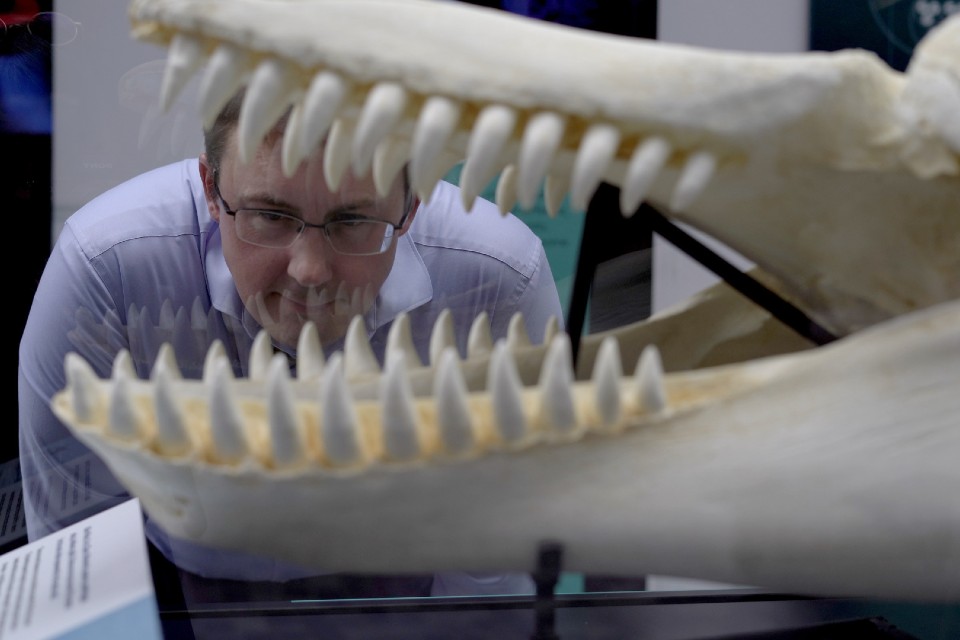
A long-associated and much beloved symbol for BC’s majestic coasts, the orca is at the heart of research for Jason Colby, professor of history. The orca-human relationship remains a relatively new phenomena and one that Colby believes has the power to change the way we think about captivity and human-animal relationships moving forward.
Indigenous partnerships
Once considered separate spheres of knowledge, the fields of science and Indigenous understandings have now never been closer. People like Pieter Romer, Indigenous community liaison for ONC says the need for scientists to work alongside Indigenous People is mutually beneficial—scientists understanding their surroundings, and Indigenous communities gain required resources.
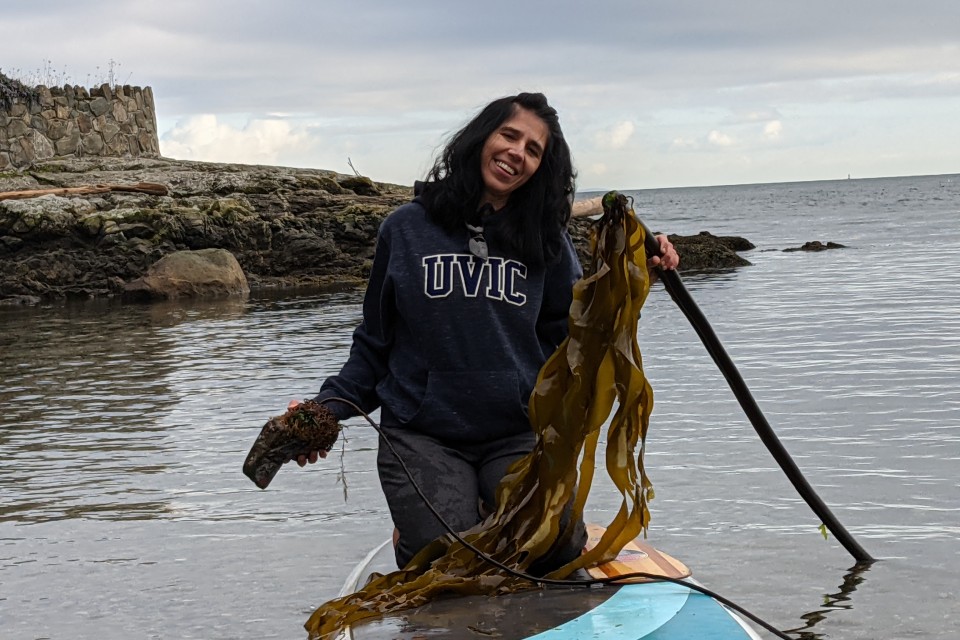
Maycira Costa, professor of geography, works with Indigenous communities to find areas in the ocean where kelp has been thriving and areas where kelp numbers have been depleting for years. The traditional knowledge of kelp has been beneficial for Costa as she and her grad students map out the southern Island for kelp biodiversity.
Passing on the importance of why Indigenous knowledge is fundamental to the work of Amanda Bates. Biology professor and UVic Impact Chair in Ocean Ecosystem Change and Conservation, Bates’ focus on the next generation of researchers to work in post-colonial ways. This will impact how restoration and resiliency will help support ocean research moving forward.
Photos
In this story
Keywords: oceans, Indigenous, climate, environment, sustainability, colonialism, technology, water, research, partnerships, clean energy
People: Kate Moran, Brad Buckham, Amanda Bates, Maycira Costa, Chloe Immonen, Iain McKechnie, Jason Colby, Pieter Romer

